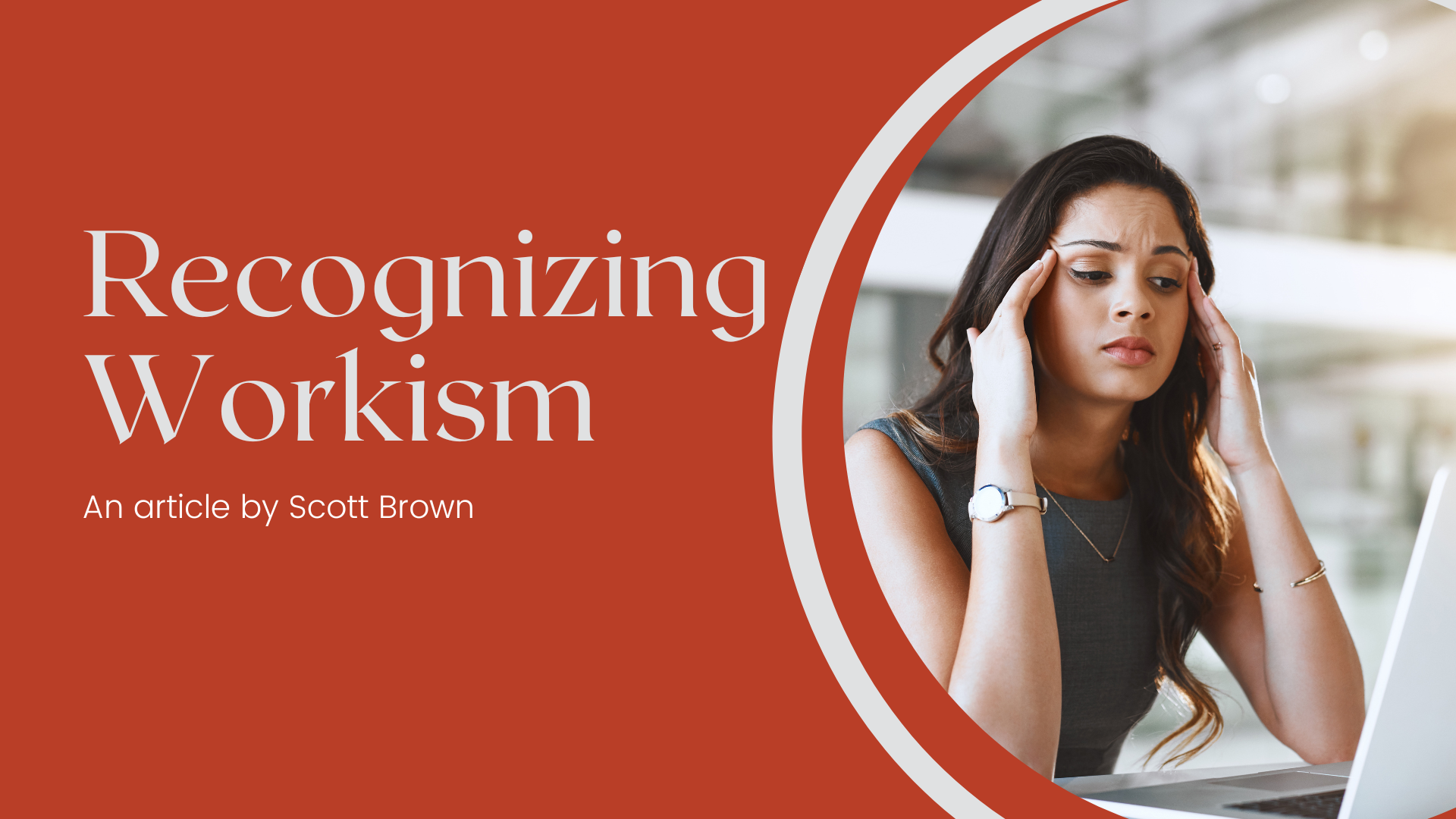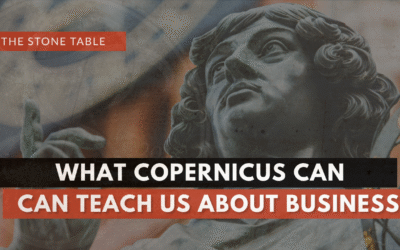Recognizing Workism

Sometimes we have a natural tendency to build our identities around something. It comes as a subconscious move to fix ourselves around an object, habit, hobby, or person and it results in us being connected to this thing, deriving our sense of worth, value, or respect from it. We become inherently attached to this thing, giving it an unspoken power over our attitude or attention. It becomes who we are.
Thinking of the Marvel supervillain Venom, in a similar way, this “thing” creates a symbiotic relationship with us. It takes something from us in exchange for what we are looking for – whether that is power, status, attention, fulfillment, human value, money, or something else. Unfortunately, this “thing” is generally not a good “thing”, which means it generally takes something we need to give us something we don’t.
Workism works much in the same way. Workism is an unhealthy attachment to our work – something crafted from a distorted sense of value or self-worth – that tells us it is our work that gives us what we seek (see above list). Work becomes our “thing” and workism becomes the venom that feeds it.
Workism stems from a good idea, a healthy concept of work, and something God created to be good. God made work to be good, fulfilling, and enjoyable – it was meant to add value to our lives and give us something to perfect. Work was not meant to consume us; it was meant to add to us. Workism, however, takes that sense of healthy work and adding value to us and twists it to define work as the thing that gives us value in the first place. This is a Genesis 3 distortion, one that came from the Fall.
Even in that fallen sense of work-based identity, the modern religion of workism, we find ourselves just as open to the redeeming power of the Gospel, even in our work.
Value System
Work is important. All work is important! God gave each of us a role to fill and a part to play; some of us are janitors, some of us are pastors, and some of us are business leaders. Each role is important, vital even, in God’s Kingdom and His plan for humanity.
Realistically, we are all called to ministry. While I may be called to be a vocational pastor, my ministry is not restricted to that space right now as a student. Right now, my ministry also includes being a summer Resident Advisor on campus, a fiancé to my fiancée, and a friend, son, brother, and more to my family & friends around me. I am not limited by my vocation.
You, too, are not limited by your vocation. Your work matters and your work is your platform for ministry, right where you are.
When we talk about workism, we are talking about something that can limit your capacity to minister in your vocation. Workism is a wrench, a closed hold on the marketplace, and one that even affects Christians today. While Christians have the capability to see work in a much more fulfilling, wholistic perspective, there are many today that still find themselves trapped in a place where their identity is at stake – hanging in the balance of their job title. This is workism.
We as Christians have a ridiculously unfair advantage in the workplace, and I’ve always said this. We have the power, by the Spirit, to find joy, fulfillment, and worship to God in all that we do. That gives us a huge advantage in the marketplace! We should be leading the world in our originality, ingenuity, and love for others. Yet, when we find ourselves trapped in a workism mindset, we are limited in what we can accomplish.
Workism puts us in a place where we feel we must rely solely on the work of our own hands to be provided for. It is an idolatry that robs God of His role as provider, identifier, and sustainer. Instead, workism places work at the center of those three things, building our identity with the broken concept of false theology. Yikes.
I know I’ve been there before! I’ve let things get out of whack when life gets hard. It’s hard to balance life with friends when I have an awesome fiancée. It’s hard to balance work with rest when I feel like I have to make money to survive. It’s hard to find time for myself when I want to pour into others.
Workism rides in on the coattails of hard times. It strikes when you’re least expecting it, creeping in when your stress levels start to rise, or your finances start to fall. It becomes an easy way out of your problems, but it roots itself deeply when you walk beneath its branches.
Yet, even still, some of us either choose to follow workism or do so without knowing it. So, how can we recognize the symptoms?
Often it looks like stress. Sounds pretty generic, but if you’re stressed out about not being at work, there’s a good chance you could be lying beneath workism (and could also use a Sabbath). If you’re stressed that someone else is getting ahead of you while you’re gone, stressed that if you take a day off to rest you might not make the cut of your next bill, or stressed that your boss won’t give you their favor if you’re not clocking in 50+ hours a week… Yeah, that could be some workism there.
For me, it usually looks like stress, too. More than that, it feels like a sense of missing out. Like I’m less than others if I’m not working as much. That’s how this summer has felt.
Despite the Lord telling me that He wants me to have a “restful summer”, I still find myself comparing myself to others and their work hours, wondering if I’m “doing enough” or if my lack of work makes me less valuable. It happens. But it’s also correctable.
Re-Set
Workism comes from getting the source of your identity from work. It’s a place of worship to your work instead of worship to God. What if it was that simple? Just re-setting your worship.
If we can choose to focus on God, worshipping Him, and pursuing His Kingdom & righteousness, what if the rest of the stuff just fell back into place?
If we got our sense of identity from God, which comes through our worship to Him, wouldn’t our need for identification be fulfilled? Wouldn’t that remove the need for workism and allow us to remain confident in who we are as children of God? I’m starting to think so.
If we re-center ourselves and put our hearts back in line with the Lord, allowing ourselves to worship Him freely and pursue Him for the sense of who we are, we are able to cut out the roots of workism in our lives, and idolatry altogether. This puts us back in sync with the Holy Spirit, allowing us to flow freely as He wills, giving us the power to pursue Him, love others, and work well for the glory of God.
I think that sounds like a good idea. And I think I’ve answered my own questions.



